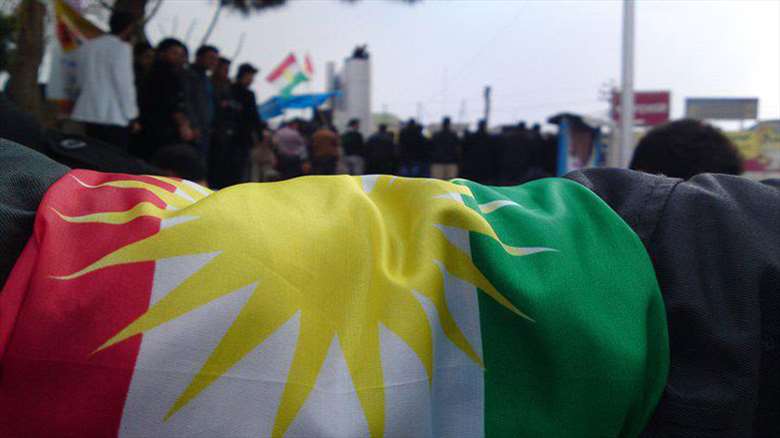Kurdistan’s leading parties exchange blame for breaking deal on gov. formation

ERBIL (Kurdistan 24) – Following the much-anticipated parliamentary session to vote in the region’s next president, the two leading parties in the legislature both claimed the other broke a supposed landmark deal between them on government formation.
Eighty-one lawmakers in the 111-seat body attended the Tuesday gathering that saw the appointment of former Kurdistan Regional Government (KRG) Prime Minister Nechirvan Barzani as president.
Among those that boycotted the session were MPs of the runner-up Patriotic Union of Kurdistan (PUK), who just recently inked another deal with the leading Kurdistan Democratic Party (KDP), one that was believed to have laid to rest some of the lingering disputes between them.
Read more: KDP, PUK agree on new Kurdistan government, president, Kirkuk governor
The two parties’ agreements, as explained during a press briefing after the vote by the head of the PUK’s caucus, Begard Talabani, had addressed three key points: partnership in the governance of the Kurdistan Region, issues relating to the disputed territories—most notably, Kirkuk—and the Kurdish position in Baghdad.
But the PUK said in a statement that the KDP has taken “no steps” to implement the deal between them and “finds a [new] issue every time” it comes to dealing with “the question of appointing a Kirkuk Governor,” which was slated to go to the PUK.
However, the KDP published a statement shortly afterward in which it claimed it had indeed dealt with two of the main issues, including nominating a PUK member to the governorship post, which, as outlined in the agreement between the two parties, was to be settled by KDP leader Masoud Barzani and PUK acting-head Kosrat Rasul Ali.
“After exchanging opinions and discussions, both agreed on nominating Mr. Faraydoun Abdul-Qadir for the post of Kirkuk Governor,” the KDP statement read. But, it continued, late Monday—a day before the vote—“the PUK leadership sent us three more names” for the post “and this is a violation of the agreements and promises.”
The Iraqi government ousted the former governor of Kirkuk in late 2017 when Iraqi forces and Iran-backed Hashd al-Shaabi militias attacked Kirkuk, forcing the withdrawal of the Kurdish Peshmerga from the area. Since then, Kurdish parties have accused the acting governor, Baghdad-installed bureaucrat Rakan Saeed al-Jabouri, of enacting divisive policies that have increased tensions among the peoples of the ethnically diverse province.
The post of Iraq’s Justice Minister is yet another issue that is yet to be resolved between the two parties, also slated to be dealt with by leaders Barzani and Rasul Ali. This seat is one of three that have remained vacant since Adil Abdul-Mahdi took office as Iraq's Prime Minister in October.
Eight months since the Kurdistan Region’s parliamentary election was held, its parties have still failed to form a new regional government and stalled inter-party negotiations have been the rule, not the exception. This has been true especially between the leading KDP and the PUK, a party which has in recent years suffered from internal rivalries following the passing of its late leader Jalal Talabani.
Read more: Kurdistan leading party’s delegation meets runner-ups in Sulaimani
The KDP statement added that, from the start, the party “understood the internal issues of the PUK” and took its time with the party, “which was the reason behind the delay in forming the legal institutions of the Kurdistan Region.”
The continued setbacks, it read, “have damaged the standing of the region and the political process, especially when Kurdistan, Iraq, and the area are going through a sensitive time and we need a strong government and a united [nation] for Kurdistan.”
PUK spokesperson Latif Sheikh Omar said in a statement later on Tuesday that the party’s leadership council would hold a session on Wednesday to examine “PUK’s future stance” on the issues that remain unresolved.
Editing by John J. Catherine
